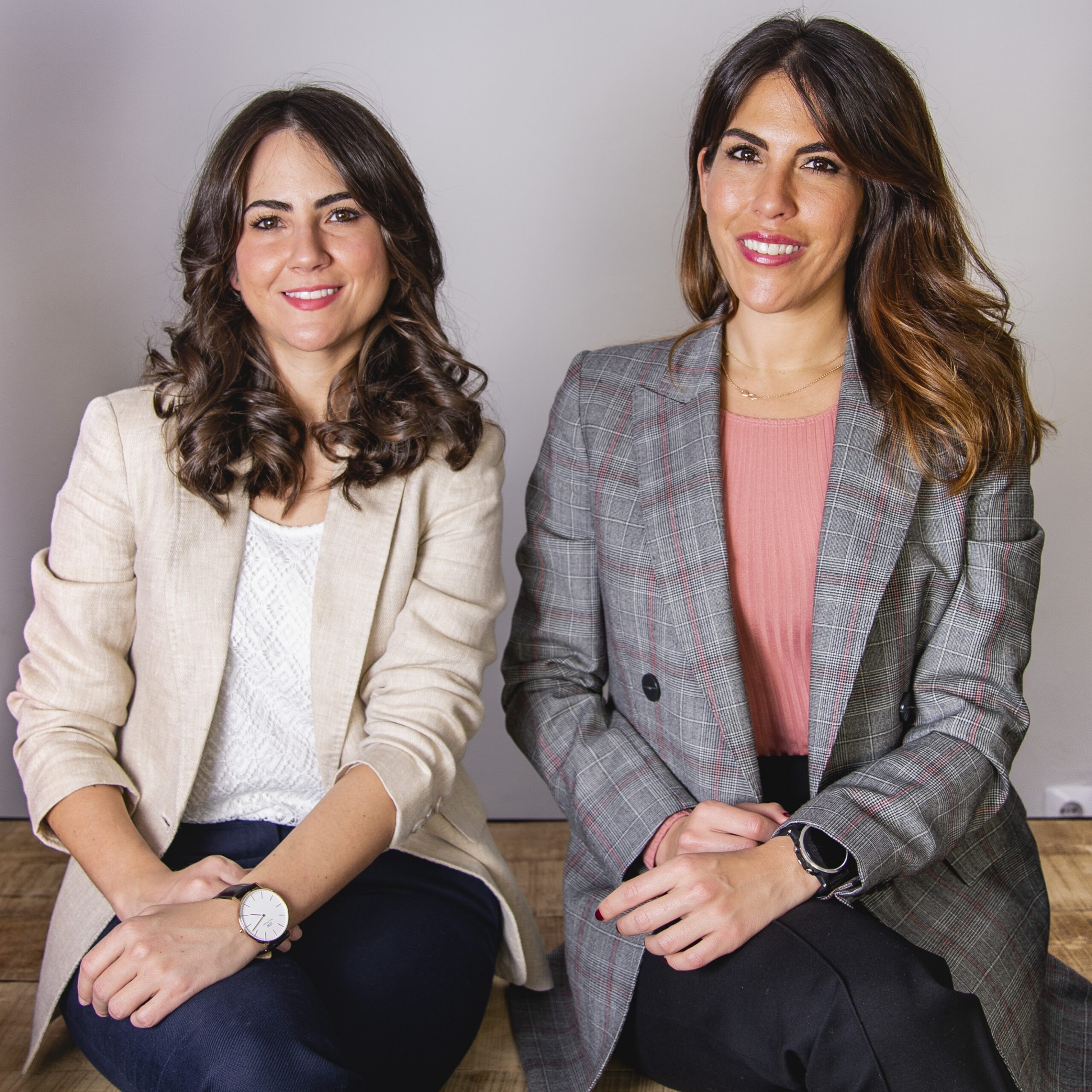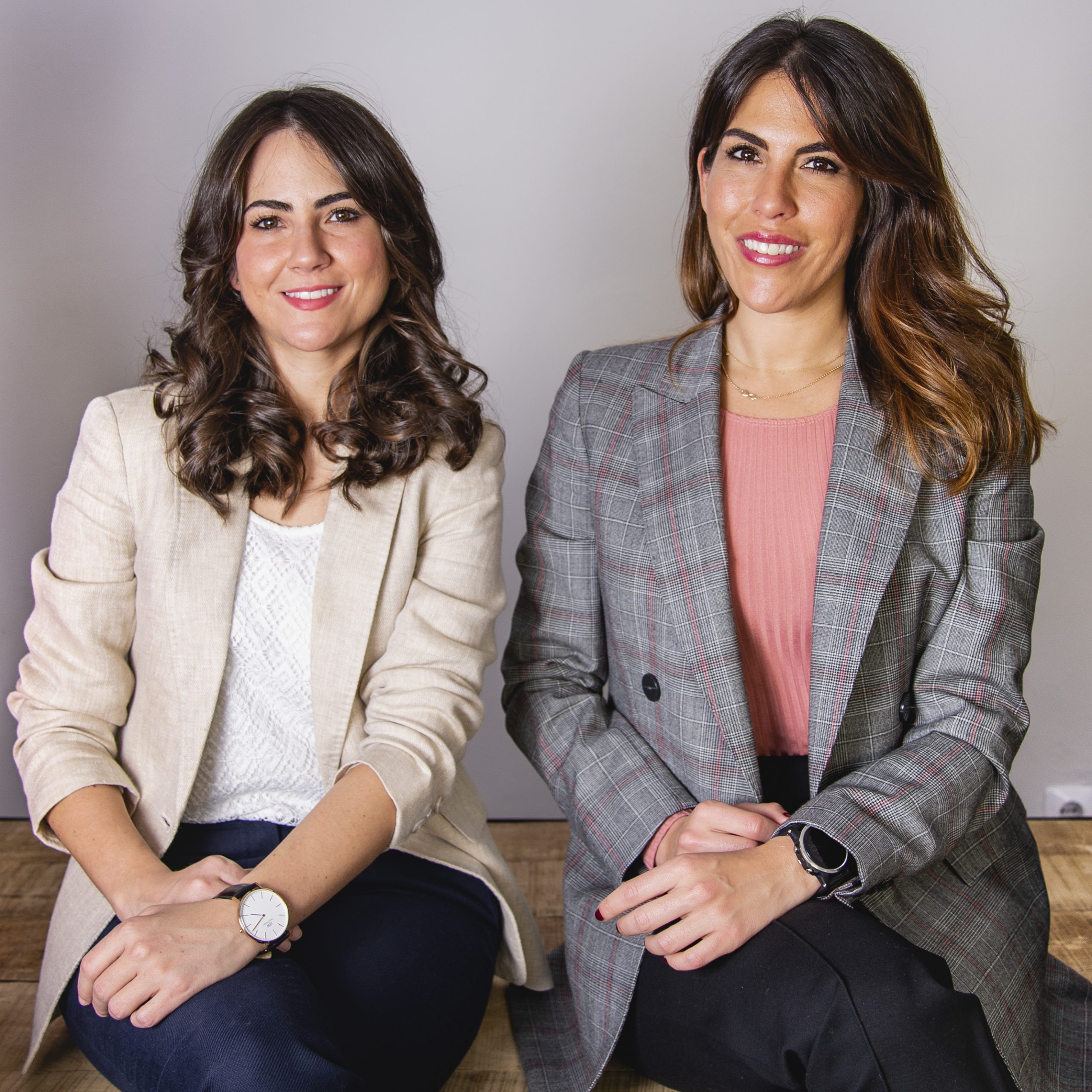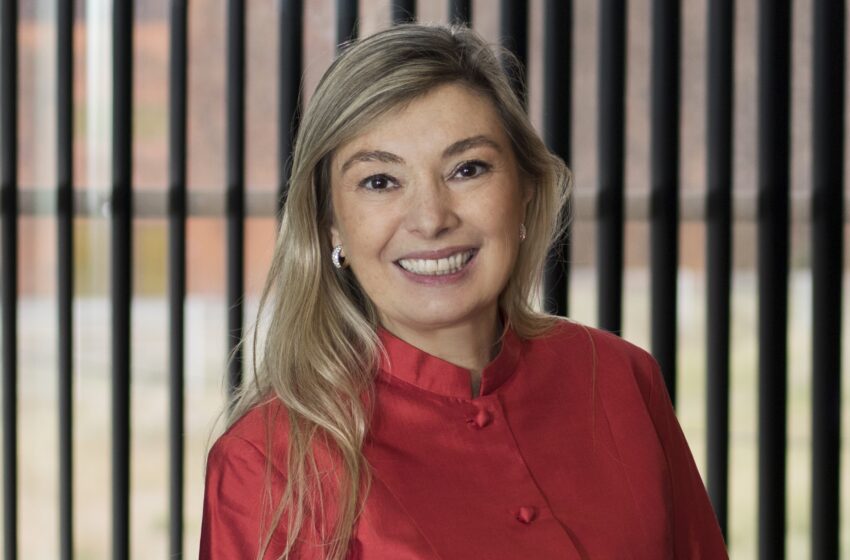Family first

The forced confinement has meant that the coexistence of all the members of the family nucleus has been put to the test and, despite what we might think, according to Vestalia Asociados, in Spain, at least for the time being, we are passing the test. The situation has also generated many doubts about visiting rights regarding children of separated parents and custody matters. On the other hand, the high number of deaths due to the COVID-19 has led to the rescue of legal concepts as the “will in case of an outbreak”. We asked Delia M. Rodriguez, who directs this Family Law Boutique with her partner and sister Adriana, about the impact of the coronavirus on Family Law

First of all, which of the extraordinary measures announced by the Government of Spain in this period of pandemic are those that most affect Family Law?
The legal framework following the entry into force of Royal Decree 463/2020 of 14 March, which declared the state of alarm for the management of the health crisis caused by COVID-19, includes a series of exceptional measures, including those that restrict citizens´ freedom of movement. As expected, these measures had a direct or indirect impact on Family Law, and on the lives of hundreds of families who have not found a clear and unanimous response to the wave of questions raised in recent weeks.
The first of the questions that came to the mind of hundreds of parents was: Are visits to children automatically suspended once confinement begins? And the previous question was followed by a series of questions that have been circling for several weeks in Family Law firms: Can the parents move, without being fined, to comply with the visit/stay regimes of underage children? And, I add to the above, can children be moved by the parents and under what conditions, are these moves also allowed between provinces, could they be carried out by public transport or only by private vehicle?
Article 7 of Royal Decree 463/2020, states that it will be possible to circulate for “the assistance and care of the elderly, minors, dependents, disabled persons or particularly vulnerable people.” It also states that “private vehicles will be allowed to circulate on public roads for the performance of the activities referred to in the previous section.” The broad interpretation of this article suggests that the exception in question does allow parents to travel, accompanied by their children, in order to comply with family court rulings (the transfers often being necessary to ensure the care of minors because no parent is teleworking); however, this issue has not been free of controversy and differing opinions among the various legal operators.
After almost a week of uncertainty as to whether or not these restrictive measures allowed parents to move from their homes to comply with the judicially agreed regime of stays and visits, institutions and public authorities issued various statements, clearing up some of these issues. Thus, on March 20, the Permanent Commission of the General Council of the Judiciary agreed in an extraordinary session that it would be up to the competent judge to decide on the suspension, alteration or modulation of the custody, visits and stays regime agreed in the Family proceedings. In other words, each court will have to analyze, on a case-by-case basis, each family context in order to give an adjusted response to the extraordinary situation we are going through, always bearing in mind the need to preserve the health of the children and the parents themselves, which could lead to a suspension or modification of the current visitation regime.
However, we Family Law professionals quickly ask ourselves a series of worrying questions: will this mean that parents who do not reach an agreement will request precautionary measures, causing the courts to collapse? Will this type of incidents be admitted for processing or, on the contrary, will these parental conflicts remain in the system limbo, without giving them a quick response that guarantees the well-being and rights of the minors? Then, we suddenly found ourselves faced with the agreements of the Boards of Judges, which set out their own criteria in the face of this crisis by the COVID-19. It should be noted that they are not automatically applied, as some parents thought, although they give law professionals an approximate idea of “where we should be going” if we raise certain questions in that particular judicial district. The controversial issue is that these agreements, depending on the jurisdiction, reflect different positions before the same reality, some of them very different from each other.
In other words, controversy and chaos were served by placing the ball on different courts of justice court, producing intolerable legal insecurity and inequality of rights between adults and minors. Faced with a very similar case, we Family lawyers have been able to verify that the different Boards of Judges have reacted with criteria that, far from being unanimous, substantially vary, and one answer or another can be found depending on where the parents live. It is true that, in a general way, most of these agreements of the Boards of Judges have chosen to temporarily suspend inter-weekly visits, sometimes extending the weekend stays, in order to reduce the children´s transfer and, consequently, the risk of contagion. As for shared custody, it has been decided to maintain this model as it was being developed, considering that the children have two habitual residences.
There have also been talks on the possibility of compensating in the future for the days not enjoyed once everything returns to normal, although the channel for dealing with these incidents has not yet been clearly defined, in addition to the collapse that the judicial system will suffer. The consequences of this turmoil have sometimes resulted in concord, sometimes in opportunism for those who seek to take advantage of a judicial process. There have been many parents (mostly fathers) who have turned to us for help in the face of the other’s refusal to pick up the children. This circumstance has occurred especially in those cases in which there are legal proceedings in progress or about to start, with not few family dramas taking place in recent weeks. The reality, although little is said about it, is that there are parents who are being unjustifiably deprived, by the unilateral decision of the other (and not because a judge´s ruling) from communicating (even by telephone) with their children.
The other side of the coin is much sadder: behind these families, there are hundreds of children who are also suffering the consequences of their parents’ determinations, who do not always act really out of duty and responsibility to care for their offspring, but out of personal interest. Also, it is fair to say that many parents have acted with common sense, making fair decisions and reaching agreements with the common good in mind, especially that of the children.
In addition to these incidents, many other issues have arisen, such as those relating to child maintenance payments. With changes in parental arrangements for visitation, burden-sharing to meet the needs of the children is inevitably affected. There have also been many substantial changes in the economy of parents due to layoffs or business closures and enterprises shutdowns, many of them of a permanent nature. Although it is a less commented reality, many people without an employment contract have been deprived of their income and without the possibility of applying for unemployment. All of this could lead to future modifications of court orders for the application of the reduction or extinction of child maintenance, which will have to be requested before the competent court.
The reality is that this unprecedented health crisis situation has tested us all, both personally and professionally. Since the beginning of the state of alarm, from Vestalia Asociados we have tried to answer the parents´questions, for which we decided to design an article that we were updating on a daily basis according to the official information that we were receiving from public sources and institutions. This content has received an average of 15,000 visits per day during two weeks, figures that reflect the concern of many families who did not know how to proceed with the restrictive movement measures. In less than a month, we have received nearly 300 calls, emails and blog comments from parents who asked us how to implement the regime of visits with their children in quarantine, many of them with a difficult response due to the extraordinary situation we are going through. The increase with respect to 2019 has been 70%, with a considerable reduction in March on legal consultations related to typical divorces or separations.
Thus, the casuistry exposed in the questions of the parents went from simpler questions such as what documents to take with them to justify their departure from home before the authorities, to the possibility of suspending the visits when there are people at risk in one of the parents´ homes due to essential work with intense exposure to the virus.
Problems have also arisen for parents who have been separated for a long time but who have not had their situation regulated by law. The advice we have been offering to families always starts from trying to reach an agreement between the parents, facilitating our joint advice and the online family mediation service. If the dispute cannot be resolved in a cooperative manner, there is no other option but to request urgent (precautionary) court orders before the competent Family court, with the uncertainty that this entails due to the waiting periods and the diversity of criteria of the Boards of Judges.
With the paralysis of Family court proceedings, including provisional court orders, which some consider already too long to process, the situation seems to be now more complex. Would you say that there is a greater willingness for agreement in the face of the impossibility of going to court? When in doubt, we understand that children´s protection prevails, in this case, their health. Is this always the case?
Our recommendation from Vestalia Asociados has been and still is, to always try to reach an agreement, for many reasons. Indeed, waiting times in the courts are going to shoot up, even more so. On the other hand, families facing this health, social and economic crisis, are not ready to incur more expenses, so a contentious process should be the last option as it means higher costs at all levels. In fact, many families, when presented with the procedures for requesting the suspension or modulation of visits from the courts as a precautionary measure, have reacted by opting for dialogue, reaching agreements without the need for lawyers or mediators, which seems to me to be the ideal option. In the majority of cases, as I explained, the parents have reacted in a sensible manner, being both dialogical and sensible, both thinking of the well-being of their children. Thus, we have seen families who have decided to prudently suspend visits for different reasons, such as excessive distance between homes or because one of the parents had a higher risk job.
Other parents have continued the visits, but have split the time in half and readjusted the maintenance allowance; some have also suspended the inter-weekly visits, adding them to the weekend periods, thus reducing the children’s transfers. The children´s interest should be the absolute priority in these decisions, although we have also found that some parents (mostly the guardians, who are usually the mothers) have decided, without the other parent, to suspend these visits on the grounds of danger to the children.
Minors have been recently allowed to go out now with their parents in a controlled way, so we understand that this will mean a new change in the circumstances that will allow the exchange of children between parents to take place. The courts that suspended these visits can now reconsider this decision by express request of the affected parent.
The current economic situation, with the loss of employment and purchasing power, will also lead to an increase in claims, both for non-payment of maintenance and for the need to reduce maintenance payments in accordance with the new situation. Do you expect a high rise in claims in this regard? Will the family courts be ready to process them as soon as the judicial activity is resumed? What measures should be implemented to alleviate this situation for the involved parties?
Indeed, the passage of the COVID-19 through our lives is going to bring quite a few consequences on many levels. The first of these is short term and has to do with modulating the food allowance in view of how time-sharing with children during quarantine is developing. In the interest of agility and pragmatism, the appropriate thing to do is reaching a mutual agreement, in writing, between the parents, evaluating different factors such as the temporary reduction or elimination of certain children´s expenses (e.g., school fees, dining room, school route, etc.), if the non-custodian shares more time with the children than with the ordinary regime of visits, the suspension of extra-curricular activities, the remuneration of a third party to be with the children if both parents work, etc.
These changes will be temporary, only applicable to the confinement period. The second would be the reduction of maintenance, within a judicial process of modification of court-ordered measures, and for this, a series of requirements must be given, such as that the parents obliged to pay must prove that their economic situation has substantially and permanently worsened. It is important to note that, until an agreement is reached with the other parent or an application is made to the court for modification of maintenance, the parent who is obliged to pay maintenance remains subject to this obligation towards his or her children. This means that if maintenance is not paid, even if justified, the debt will accumulate and can be claimed by the other parent within five years. Of course, if the non-payment is not justified and involuntary, it could also constitute a felony.
Finally, there may also be a change of measures in cases where the parents have equally divided the time and the non-custodial parent requests joint custody of the children. In these cases, it will be necessary to prove, among many other factors, that the working and personal conditions that allow for the care of the children with this model will continue to be favourable after the state of alarm is over.
We understand that the increase in deaths these days due to the coronavirus pandemic is having an impact on inheritance management. Have you noticed an increase in these requests? Aside from everyday inheritances, are you aware of unclaimed fortunes “heir hunters” in search of legitimate heirs “seizing the moment”?
It is true that there has been a slight increase in this type of consultation with respect to the previous year (20-25% more), but in our experience, they have been more focused on legal advice requested by the family, and not with a contentious approach. We have also received requests for family mediations to clarify some points of disagreement between heirs, a service that has worked very well thanks to technology. However, I believe that families are so dramatically affected by COVID-19, that are now focused on overcoming this pain, postponing involvement in legal proceedings, and only if they are necessary.
As for the ‘heir hunters’, just as with everything in life, there is always someone who unscrupulously gets a cut from the misfortune of others. It should be noted that, in relation to this health situation, some of the Spanish Bar Associations have issued statements reminding their members that they cannot, according to our Code of Ethics, and for a set period of time, carry out publicity campaigns taking advantage of the vulnerability of the victims of a disaster of this magnitude.
In these times, we have seen how a legal form that, despite what it may seem, has not disappeared from our Civil Code, has become fully relevant: the will in case of outbreak; this exceptional kind of open will that does not need o be granted by a notary public to be valid.
In law, we see how some issues become relevant in a cyclical way, going away and coming back, even if a priori we feel them ‘from another era’. Consultations on wills in the event of an epidemic have been occasional, perhaps due to the lack of knowledge about this legal concept. In fact, article 701 of our Civil Code includes the option of making a will in the event of an epidemic: “in the event of an epidemic, the will may also be granted without the intervention of a Notary Public in the presence of three witnesses over the age of sixteen.” This official declaration of a pandemic affecting the entire Spanish territory allows (except for those civil residents of Catalonia), wills to be granted without the need for a notary.
There is also a novelty introduced in the Organic Law on Notary by Law 15/2015, which allows that in the event that the testator is unable to write his last will by himself, it may be recorded by voice or by video with audio, “provided that it allows its reproduction, and it would have been taken when the will was granted.”
After the confinement in China, one of the surprising news was the record of an unusual increase in divorce petitions after spending several weeks confined to their homes by the coronavirus. Has this situation been replicated in Spain? What data are being handled in this regard? Will more divorces than expected arrive after the confinement?
Without going into a deep analysis of these issues, which are not without controversy, it is possible to think that there will be an increase in requests for divorce and separation after the confinement, but in my opinion, this will be later, once Spain has managed to put a stop to the COVID-19. It is foreseeable that living together for 24 hours, without being able to go out and under immense pressure and concern about health and economic issues, will increase the number and intensity of conflicts at home.
After the holidays (summer and Christmas), when couples share leisure and rest time, we already see an increase in the number of new Family procedures. Then, a situation of this magnitude could even more easily detonate emotional relationship in many couples and marriages. However, although we are beginning to see a certain movement in legal consultations focused on advice prior to separation or divorce, in my opinion, this increase will come at the same time as some key facts and factors such as the time when confinement is over, the return to normal work or the stabilization of the family economy. Many people will be able to digest the complex decision to separate in these weeks, but this is different to executing this same thing since it is evident that a divorce carries a multitude of consequences in the personal and economic life of parents and children. Too many issues that, for many, will now be an impossible burden to bear or an added concern that they cannot take care of given their current order of priorities. The rise in separations and divorces is expected to start in June-July, and to peak after the summer months, once the usual ‘September rush’ is over.
BOX 1
Vestalia Asociados in times of COVID-19
Vestalia Asociados, out of responsibility for its clients and employees, has been teleworking even before the state of alarm was declared, adapting its professional services to the current situation thanks to technology. They have created new services for families, such as the ‘online flat rate’ prior to separation or divorce, and have promoted others such as online family mediations focused on managing separations, conflicts at home with children and inheritance processing.
They have adapted their website content, as well as their social networks, to let their customers know that these services are available for them and that they can communicate with the firm through different channels (telephone, Whatsapp, email, video conference), even in the emergency service. This new form of customer service imposed by current circumstances undoubtedly opens the door to a new way of practising law that is allowing us to extend our services more quickly and intensely to other parts of Spain.
They currently have offices in Malaga, Palma and Madrid, with future openings in A Coruña, Seville and Valencia, although they receive requests for advice from many other provinces in the country.
Article by Desiré Vidal
To read the article in full please download issue N.94 here












